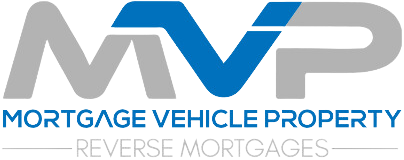For many Australians entering their retirement years, a reverse mortgage can seem like an attractive option. With rising living costs and the desire to make the most of your retirement, a reverse mortgage offers a way to access the equity in your home without having to sell it or move. But how do you know if a reverse mortgage is right for you? In this article, we’ll break down the key points to help you make an informed decision.
What is a Reverse Mortgage?
A reverse mortgage is a type of home loan that allows Australians aged 60 or older to borrow money against the value of their home. Unlike a traditional home loan, you do not need to make regular repayments. Instead, the loan and accrued interest are repaid when you sell your home, move into aged care, or pass away. The amount you can borrow depends on your age, the value of your property, and the policies of your lender.
If you’re considering a reverse mortgage and want to explore how it could work for you, reach out to MVP Reverse Mortgages. Our experienced brokers are ready to guide you through the process and answer any questions you may have.
For a detailed explanation of what a reverse mortgage is, please refer to our comprehensive guide on reverse mortgages.
Pros of a Reverse Mortgage
- Access to Funds in Retirement: Reverse mortgages allow you to unlock the wealth tied up in your home, providing funds that can be used for everyday living expenses, medical care, home improvements, or even travel. This can be particularly beneficial for retirees who have limited cash flow but significant home equity.
- No Immediate Repayments: Unlike standard loans, there are no mandatory monthly repayments for a reverse mortgage. The loan is typically repaid when the property is sold. This can ease financial stress by not adding an extra bill to your monthly budget. However, it’s important to note that interest will accumulate over time.
- Stay in Your Home: With a reverse mortgage, you can continue to live in your home. This means you won’t have to downsize or relocate just to access the equity in your property.
Cons of a Reverse Mortgage
- Accumulating Interest: Since you don’t make regular repayments, the interest compounds over time, meaning the total amount owed can grow rapidly. This can significantly reduce the equity you have left in your home, potentially impacting the inheritance you leave to your family.
- Reduced Flexibility: Reverse mortgages may limit your ability to move or sell your property. If you decide to move to a different home, the loan generally becomes due, which can complicate future plans.
- Impact on Government Benefits: Accessing the equity in your home might affect your eligibility for certain government benefits like the Age Pension. It’s essential to understand how these funds could impact your financial situation in the long term.
Key Considerations Before Getting a Reverse Mortgage
- Seek Independent Financial Advice: Given the complexities involved, it’s crucial to speak with an independent financial advisor who understands your personal situation. They can help you weigh the pros and cons in light of your broader financial plan and provide guidance on how a reverse mortgage might affect your retirement goals.
- Talk to Family Members: A reverse mortgage will impact your estate and the inheritance you leave behind. It’s a good idea to discuss this option with your family members to ensure everyone is on the same page and understands the potential impact.
- Understand the Costs: Reverse mortgages come with a range of costs, including interest, fees, and charges. Make sure you fully understand the total cost of the loan, and carefully review the terms provided by different lenders. Comparing options can help you find the best product for your needs.
- Consider Alternatives: A reverse mortgage is not the only option to access your home equity. Downsizing, government grants, or even personal loans might be suitable alternatives, depending on your circumstances. Carefully consider all of your options before making a decision.
If you need help weighing your options, MVP Reverse Mortgages can provide a personalized consultation to determine whether a reverse mortgage is the right choice for you.
Questions to Ask Yourself
- Do I need a lump sum or regular income from my home equity? Reverse mortgages can be taken as a lump sum, line of credit, or regular income stream. It’s important to determine how you want to receive the funds.
- How will a reverse mortgage impact my long-term financial security? Consider how the accumulating interest will affect your home equity and whether this option will leave you financially secure in the future.
- Am I comfortable with reducing my estate? If leaving an inheritance is important to you, a reverse mortgage may not be the ideal choice, as it will reduce the value of your estate.
Final Thoughts
A reverse mortgage can be a powerful tool for Australians looking to access the equity in their home and improve their quality of life in retirement. However, it’s not without risks, and it’s essential to understand both the benefits and potential downsides. Seeking professional advice and involving your family in the decision can help you determine if a reverse mortgage is the right solution for you.
If you’re ready to explore your options, contact MVP Reverse Mortgages today. Our knowledgeable brokers are here to help you make an informed choice that supports your financial well-being throughout your retirement years.
By carefully considering your needs and circumstances, you can make an informed choice that supports your financial well-being throughout your retirement years.
Explore Your Financial Freedom Today
Contact MVP Reverse Mortgages today to speak with our experienced brokerage team. We’re committed to upholding strict ethical standards and ensuring your interests are protected at every step of the process.
